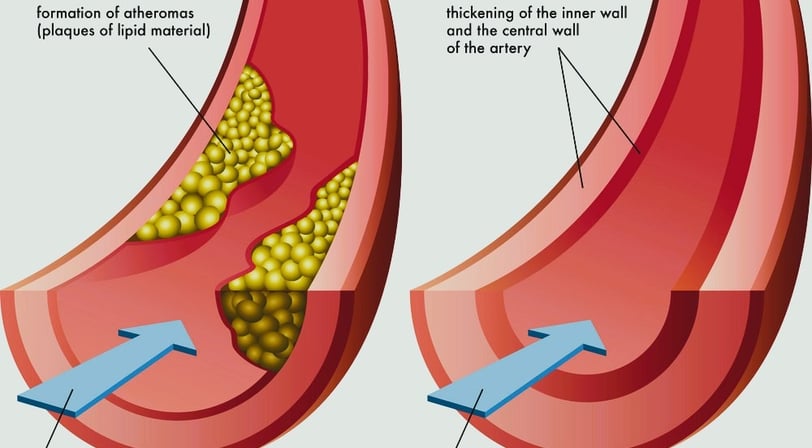Arteriosclerosis: Causes, Symptoms, Treatment
Learn about arteriosclerosis: its causes, symptoms, and treatment options. Discover effective ways to manage and prevent arteriosclerosis for better cardiovascular health.


What is Arteriosclerosis?
Arteriosclerosis is a medical condition characterized by the hardening and narrowing of arteries. It is a common form of cardiovascular disease that affects the blood vessels, restricting blood flow and potentially leading to serious health complications.
Causes of Arteriosclerosis:
The exact cause of arteriosclerosis is not fully understood, but several factors contribute to its development:
High blood pressure
High cholesterol levels
Smoking
Obesity
Diabetes
Family history of arteriosclerosis
Aging
Symptoms of Arteriosclerosis:
Arteriosclerosis often progresses silently without noticeable symptoms until a significant blockage occurs. Common symptoms include:
Chest pain or angina
Shortness of breath
Fatigue
Dizziness
Heart palpitations
Leg pain or cramping during physical activity (intermittent claudication)
Treatment of Arteriosclerosis:
While there is no cure for arteriosclerosis, treatment focuses on managing the symptoms, slowing the progression, and reducing the risk of complications:
Lifestyle changes: Adopting a heart-healthy diet, exercising regularly, quitting smoking, and managing stress levels.
Medications: Prescribed medications may include cholesterol-lowering drugs, blood thinners, and medications to control blood pressure and manage symptoms.
Medical procedures: In some cases, medical interventions such as angioplasty, stenting, or bypass surgery may be required to restore blood flow to the affected areas.
Precautions for Arteriosclerosis:
Prevention and taking precautions play a crucial role in managing arteriosclerosis:
Maintain a healthy weight and body mass index (BMI).
Follow a balanced diet low in saturated and trans fats, cholesterol, and sodium.
Engage in regular physical activity, aiming for at least 150 minutes of moderate-intensity exercise per week.
Avoid smoking and limit alcohol consumption.
Manage stress through relaxation techniques, exercise, and seeking support.
Control underlying conditions such as high blood pressure, high cholesterol, and diabetes through regular check-ups and appropriate medications.
It is important to consult with a healthcare professional for an accurate diagnosis, personalized treatment plan, and ongoing management of arteriosclerosis. Early detection and proactive management can significantly improve outcomes and reduce the risk of complications.
Remember, prevention is key when it comes to maintaining a healthy cardiovascular system, so adopting a heart-healthy lifestyle is beneficial for everyone, regardless of whether they have arteriosclerosis or not.
